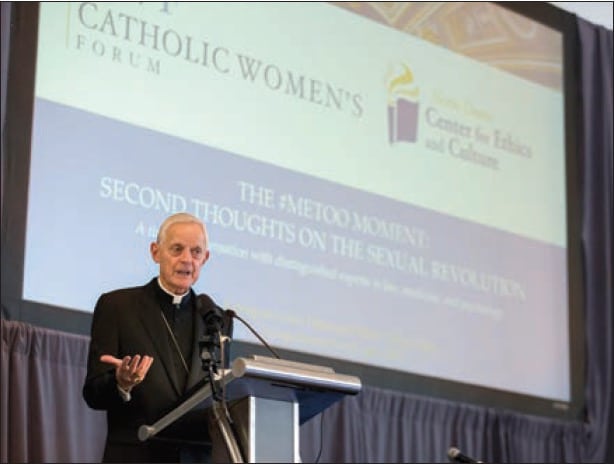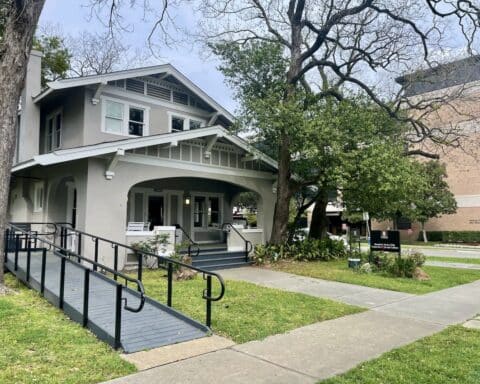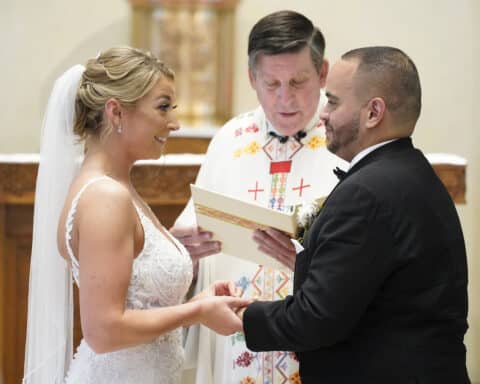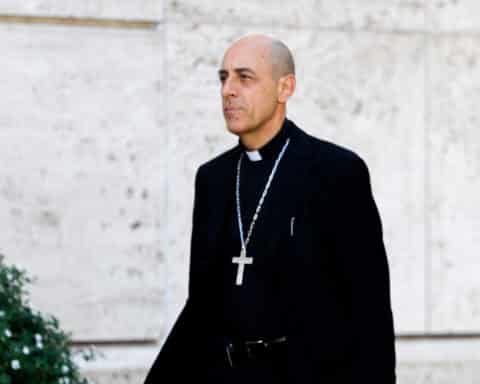“I definitely felt challenged, and for that reason I’m glad I came,” Allison, a junior studying philosophy and math at Washington College, told Our Sunday Visitor. “I definitely have a lot to think about.”
She made these remarks soon after hearing evidence on the multiple, widespread negative effects of the sexual revolution presented at the #MeToo Moment: Second Thoughts on the Sexual Revolution conference held in Washington, D.C., on May 31. Hosted by the Catholic Women’s Forum and the Notre Dame Center for Ethics and Culture, the conference focused on the harms of the sexual revolution on women, but also made mention of its negative impacts on men and children.
Starting a conversation
Though not a wholesale endorsement of the conference, Allison’s reaction would strike its organizers as an excellent start. They were not looking for immediate and total agreement; they were hoping to open doors of communication and start a vital conversation on the link between the sexual revolution and the #MeToo movement.
“We really just want to put the information out there and to raise the question so that even those who differ from us from a moral perspective or don’t share our religious faith will at least have to confront the empirical evidence,” said Mary Hasson, Kate O’Beirne Fellow of the Ethics and Public Policy Center, director of the Catholic Women’s Forum and one of the key organizers of conference.
“Most of all we hope that those outside of the religious orbit will give second thought as to why some of us haven’t been cheerleaders of the sexual revolution. For the most part, I don’t think secular people have given a fair hearing to critiques of the sexual revolution, but as of the #MeToo Movement, it’s clear that this isn’t just some religious preoccupation. The problem of sexual harassment is system-wide,” said Mary Eberstadt, conference speaker, author and senior research fellow at the Faith and Reason Institute. “What we’re trying to do at this conference is … to look at the deeper, fundamental changes in society that have made something like the #MeToo movement possible in the first place.”
Getting the facts straight
The nearly four-hour conference presented sociological, psychological and medical data on the negative impacts of the sexual revolution. Cardinal Donald W. Wuerl of Washington, D.C., gave the opening address, followed by Mary Eberstadt’s presentation describing “The Cultural Moment.”
Next, a panel of three doctors, including Suzanne Hollman, clinical psychologist and academic dean and program chair in clinical psychology at Divine Mercy University, discussed “Women’s Health: Evidence and Concerns,” presenting an onslaught of medical and psychological findings. A second panel of experts gave further data in their presentations on “Exploitation: A Booming Business.” Helen Alvaré, professor of law at the Antonin Scalia Law School at George Mason University and founder of WomenSpeakforThemselves.com, concluded the event with “A Way Forward.”
Alvaré explained why disseminating these findings is so important, saying, “Popular opinion still holds that sexual revolution was and remains a friend to women, but the evidence for that conclusion is not there. … The reluctance to say that #MeToo phenomena — sexual harassment, rape, etc. — is a product of the sexualization of society [and] the cheapening of sex … is so strong, that the major media simply will not go there.”
“I think we owe it to the young women,” Hollman stated. “A lot of the research that’s coming out is saying that there’s a definite subset of women who are not enjoying the hook-up culture at all, but they’re not sure how to get out of it.”
Changing the game
Allison was one of several students enrolled in a summer course entitled “Freedom in America” who were brought to the conference by their professor, Joseph Prud’homme. “When we’re looking at freedom, it’s important to be able to have an understanding of the distinction between liberty and license,” he explained to OSV. He called the conference “excellent” and “superbly executed.”
Laura, a sophomore studying philosophy and political science who is also enrolled in the class, said, “This definitely changed the way I thought about many of the issues. I didn’t really understand … how disturbed our values as a society truly are. And it is sad to say that it seems to me that this is an issue that, unless we take care of it now, is just going to continue to grow.” These words would very probably sound hopeful to the organizers insofar as they represent the first step in solving the admittedly enormous problem.
As Eberstadt told OSV: “What we’re hoping is that we can create a new alliance of rational men and women, whatever their political views otherwise, to look at this empirical record, understand that things have gone badly wrong, and that the sexual revolution is not something we should take for granted as a fact of life. It is something that we need to treat like any other social phenomena and to ask, when it’s hurting us, how we might change the game.”
Jeanette Flood writes from Ohio.





